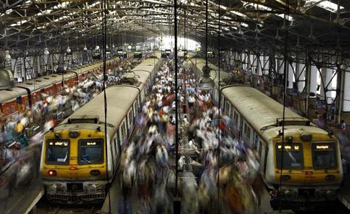 New Delhi, Jul 16: Indian Railways have received proposals totalling Rs 15,000 crore for development of various projects under the PPP mode, Railway Minister Sadanada Gowda said today.
New Delhi, Jul 16: Indian Railways have received proposals totalling Rs 15,000 crore for development of various projects under the PPP mode, Railway Minister Sadanada Gowda said today.
Gowda also defended the recent 14.2 per cent passenger fare hike and 6.5 per cent freight hike saying it was the need of the hour as there was no hike for the last 10 years and the organisation was "run on unrealistic and impractical approach."
"This Rail Budget is a budget with a difference. I have steered away from populism and focused on increasing revenue, harnessing new technology and safety and security," he said.
As regards the investments so far, he said, "We have received 79 last mile connectivity proposals, 22 private freight terminals, production units, sidings. In total Rs 15,000 crore worth commitments have been received in the recent past."
The Rail Budget 2014-15 was later passed by the House after a discussion during which Opposition members picked holes in his proposals.
Responding to the concerns of members of relying too much on FDI for development of railways, the Minister clarified that it will not be allowed in the core operation of railways.
He said foreign investment will be permitted only in big ticket projects like high speed corridor, dedicated freight corridor and suburban trains.
"FDI in railways is a positive signal to investors. It will be encouraged in railway infrastructure and not allowed in operation," he said.






Comments
Add new comment